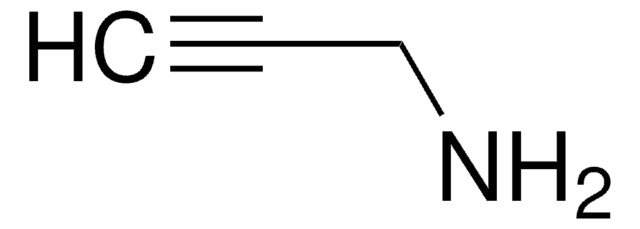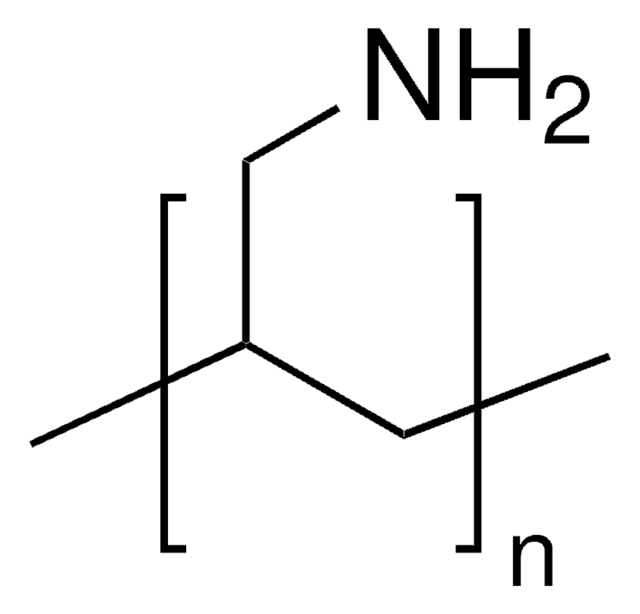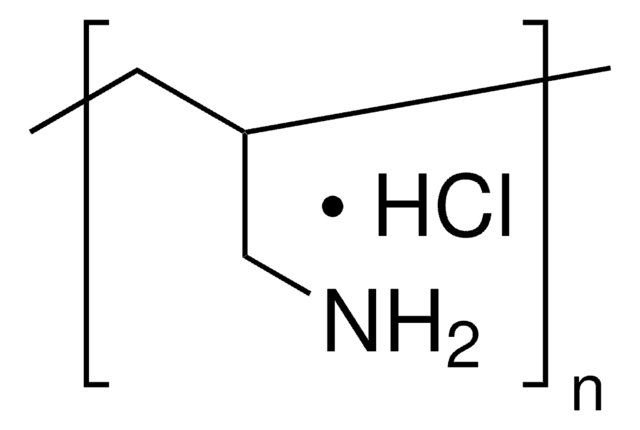735132
Allylamine hydrochloride
98%
Synonym(s):
3-Aminopropene hydrochloride, Mono-allylamine hydrochloride
Sign Into View Organizational & Contract Pricing
All Photos(1)
About This Item
Empirical Formula (Hill Notation):
C3H7N · HCl
CAS Number:
Molecular Weight:
93.56
MDL number:
UNSPSC Code:
12162002
PubChem Substance ID:
NACRES:
NA.23
Recommended Products
Assay
98%
form
solid
mp
178-183 °C (dec.)
SMILES string
Cl.NCC=C
InChI
1S/C3H7N.ClH/c1-2-3-4;/h2H,1,3-4H2;1H
InChI key
MLGWTHRHHANFCC-UHFFFAOYSA-N
Signal Word
Danger
Hazard Statements
Precautionary Statements
Hazard Classifications
Acute Tox. 3 Oral
Storage Class Code
6.1C - Combustible acute toxic Cat.3 / toxic compounds or compounds which causing chronic effects
WGK
WGK 2
Choose from one of the most recent versions:
Already Own This Product?
Find documentation for the products that you have recently purchased in the Document Library.
Aqiang Wang et al.
Small (Weinheim an der Bergstrasse, Germany), 16(9), e1903925-e1903925 (2019-10-11)
Highly sensitive responsiveness is vital for stimuli-responsive membranes. However, it is a great challenge to fabricate stimuli-responsive membranes with ultrahigh gating ratio (the ratio of the salt solution permeating flux to the pure water permeating flux) and high response speed
Jianlong Wang et al.
Langmuir : the ACS journal of surfaces and colloids, 35(10), 3615-3623 (2019-02-13)
Interfacial gas enrichment (IGE) of dissolved gases in water is shown to govern the strong attraction between solid hydrophobic surfaces of an atomic force microscopy (AFM) colloidal probe and solid substrate. However, the role of IGE in controlling the attraction
Lu Han et al.
Biomaterials, 44, 111-121 (2015-01-27)
Multifunctional nanocomplexes (NCs) consisting of urocanic acid-modified galactosylated trimethyl chitosan (UA-GT) conjugates as polymeric vectors, poly(allylamine hydrochloride)-citraconic anhydride (PAH-Cit) as charge-reversible crosslinkers, and vascular endothelial growth factor (VEGF) siRNA as therapeutic genes, were rationally designed to simultaneously overcome the extracellular
Wei Li et al.
Biomaterials, 65, 93-102 (2015-07-06)
Selective isolation and purification of circulating tumor cells (CTCs) from whole blood is an important capability for both clinical medicine and biological research. Current techniques to perform this task place the isolated cells under excessive stresses that reduce cell viability
Seyeong Lee et al.
Nanoscale, 7(35), 14627-14635 (2015-07-23)
Recent advances in nanostructure-based biotechnology have resulted in a growing demand for vertical nanostructure substrates with elaborate control over the nanoscale geometry and a high-throughput preparation. In this work, we report the fabrication of non-periodic vertical silicon nanocolumn substrates via
Our team of scientists has experience in all areas of research including Life Science, Material Science, Chemical Synthesis, Chromatography, Analytical and many others.
Contact Technical Service









